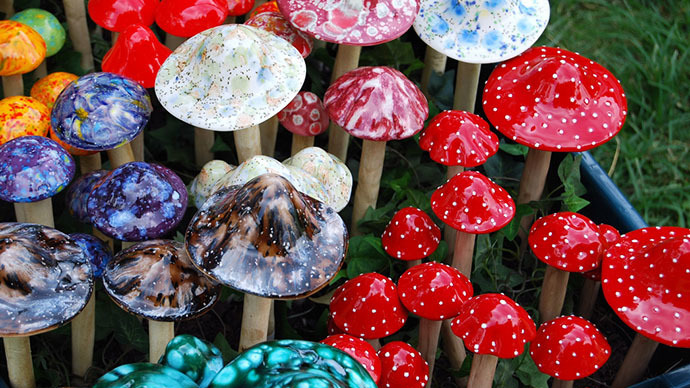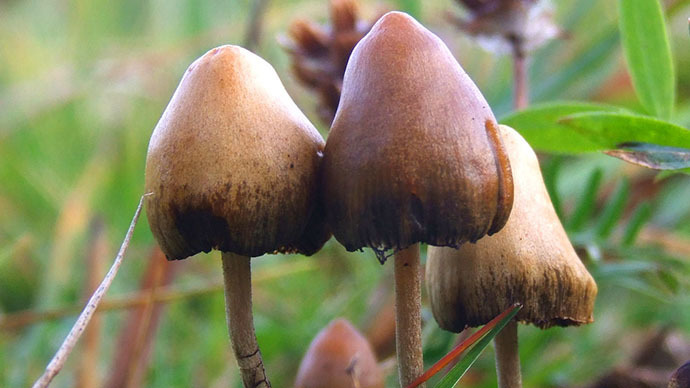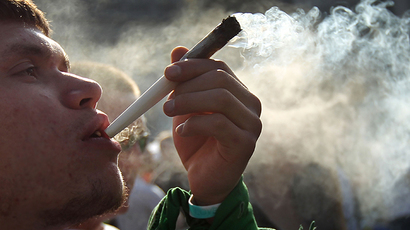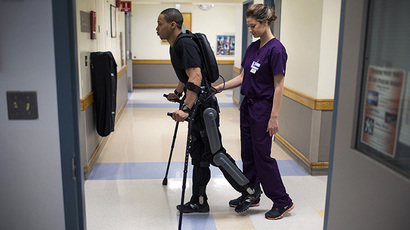Groovy, baby! Magic mushrooms & LSD can cure depression – study

A new study reveals the similarity between the way our brain works while sleeping, and when we’re tripping on psychedelic drugs. What’s more, LSD and magic mushrooms could act as a cure from depression or boost creativity.
With the help of some hallucinogenic drugs and some willing volunteers – someone’s got to suffer for science – an international team of scientists from Germany, the UK and Argentina have published their experimental findings online in the ‘Human Brain Mapping’ journal Wednesday. The study reveals patterns similar to dreaming in the way human brain reacts to hallucinogenic mushrooms, as well as LSD.
The key ingredient of magic mushrooms is the psychedelic chemical psilocybin. Its mind-expanding effects have long attracted scientists’ attention, but it wasn’t until now that physical changes in the brain have been detected.
Dr. Robin Carhart-Harris from Imperial College, London, a co-author of the study, said he was “fascinated” by the results: "People often describe taking psilocybin as producing a dreamlike state and our findings have, for the first time, provided a physical representation for the experience in the brain."
According to the scientists, taking psychedelic drugs is not only about rainbow-colored geometrical pictures popping up in the mind. Its effects on the brain not only cause changes in primitive areas of the brain linked to emotions and memory, but also tend to make people do less high-level thinking, and feel less self-conscious. All in all, brain activity becomes more disjointed and uncoordinated, immersing those experimenting with hallucinogenic drugs into a vivid, dreamlike state.
The study’s lead author, Dr Enzo Tagliazucchi from Goethe University in Frankfurt, Germany, said: "A good way to understand how the brain works is to perturb the system in a marked and novel way. Psychedelic drugs do precisely this and so are powerful tools for exploring what happens in the brain when consciousness is profoundly altered."

To study the way magic mushrooms influence the biology of the brain, the researchers conducted a series of experiments involving 15 volunteers in London in 2012. In the research, which also involved placebos, after the participants were injected with psilocybin, they were examined in a functional magnetic resonance imaging (fMRI) scanner.
Within the framework of the study, the scientists introduced entropy, borrowed from physics, where it is used to measure the range or randomness of a system. In their work they implemented this notion to different parts of the brain while in a psychedelic state. Their findings were staggering: Computer analyses showed the volunteers could experience a much larger range of potential brain states.

The fascination with magic mushrooms relies on their ability to expand consciousness. But they could also act as a medical cure. Dr. Carhart-Harris said: " We are currently studying the effect of LSD on creative thinking and we will also be looking at the possibility that psilocybin may help alleviate symptoms of depression by allowing patients to change their rigidly pessimistic patterns of thinking."
Magic mushrooms, causing hallucinations and sending people since ancient times tripping, can be found in the wild or grown quite easily. Since ancient times, they have been used (and abused) for religious rites, recreation and getting off one’s face.














